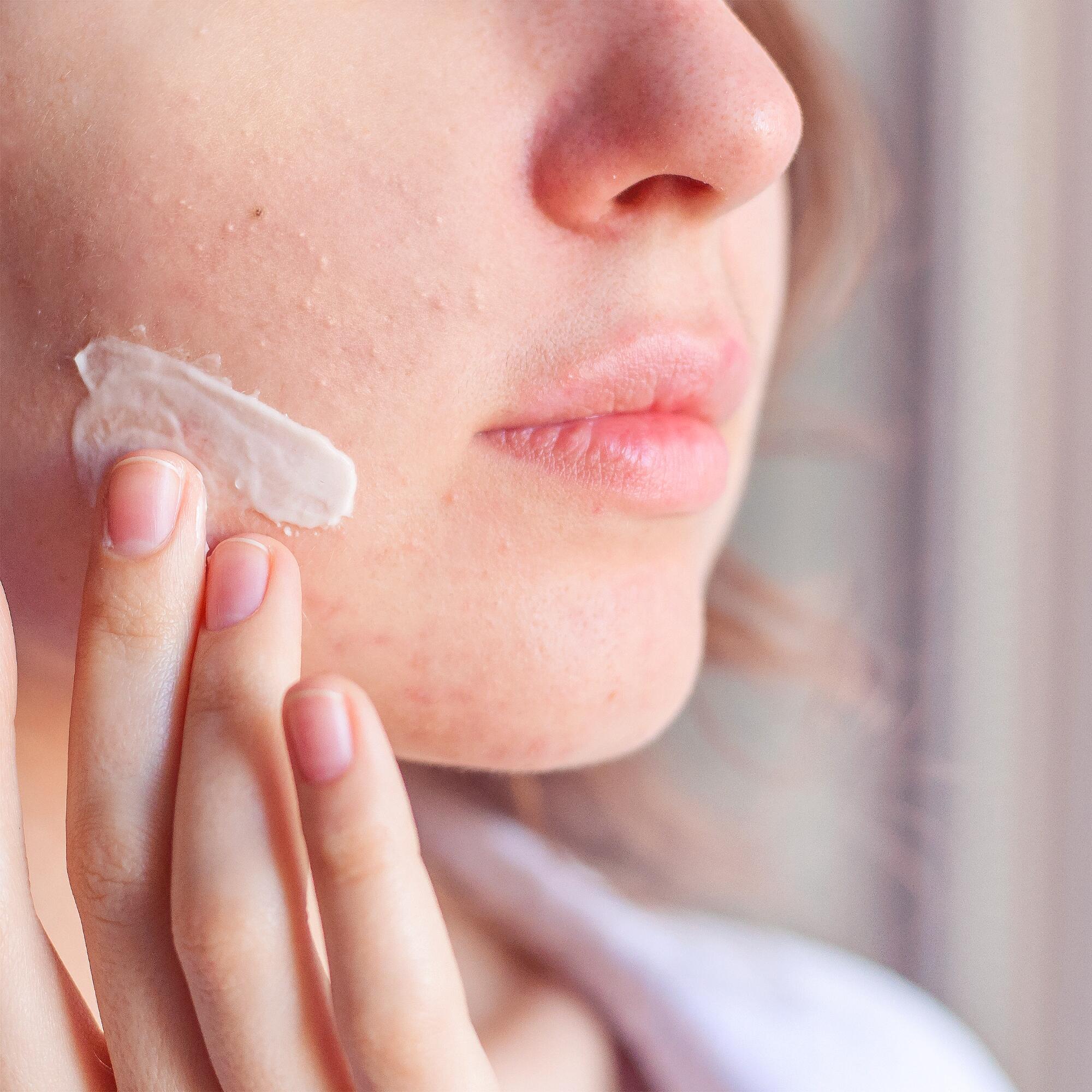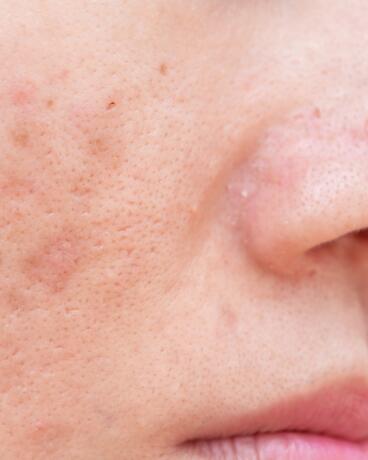Sun and acne
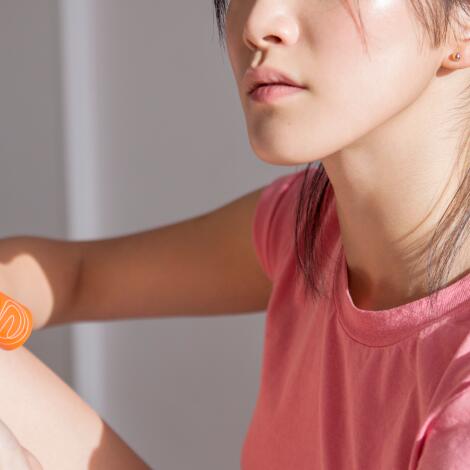
The effects of the sun on acne-prone skin
The improvement that people with acne-prone skin experience at the start of summer is often short-lived. Sun exposure actually has several negative effects on acne-prone skin. These mechanisms work in such a way that they aggravate acne in a delayed manner.
Keratinisation
Initially, UV rays do help dry out the surface layer of the epidermis, and with it the P. acnes bacteria responsible for acne. This is known as keratinisation of the skin, which comes with a hardening of the skin cells. The skin texture seems smoother and more regular, and pimples are reduced. But a few weeks later, the skin takes revenge and the breakouts come back. This is called the acne rebound effect. How does it work? Because the skin is thicker, it is actually more difficult for it to eliminate its dead cells. Sebum and skin impurities are more difficult to flush and begin to obstruct the pores, leading to more blackheads and micro-cysts which are at risk of infection (it's a bit like when drains get blocked and they can no longer do their work of evacuating waste). Summer heat and sweat don't help: sweat creates a favourable environment for the proliferation of the bacteria associated with acne.
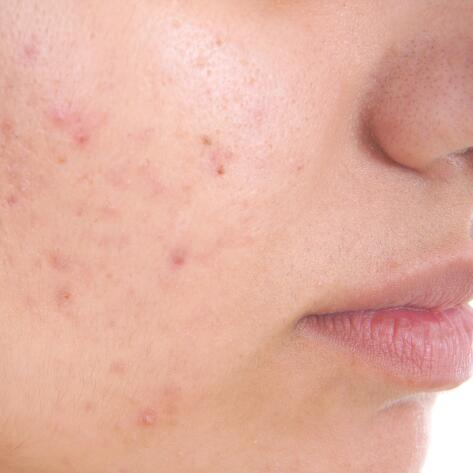
The role of the sebaceous glands
Although your skin seemed well-rested and your acne was in "off" mode during the leisurely summer months, in actual fact it was still under attack. Back at home, the skin is lacking in lipids and starts to overproduce sebum to compensate for this lack. Overactive sebaceous glands can lead to pimples, blackheads and microcysts, which is why acne tends to relapse after the summer. Finally, don't forget that in the sun, the cells don’t stop making sebum: it simply gets trapped in the thicker epidermis. When the skin stops this protective process, it lets out all the sebum that was stored in excess.
FRIENDLY, EXPERT ADVICE
By taking up some good habits, you'll be able to enjoy the benefits of the sun while taking care of your acne-prone skin.
Limit sun exposure
The first thing to avoid is too much sun exposure, so as not to make your acne worse. Excessive sun exposure and/or inappropriate sun protection can also cause pigmentation problems, and people with acne or acne scars are particularly prone to hyperpigmentation. At the very least, avoid the most dangerous hours of exposure from 11am to 4pm, and respect all the rules of sun exposure. Sunbeds should be avoided altogether, as they promote the thickening of the skin.
Use appropriate sun protection
To limit the risks of hyperpigmentation, it’s important to use effective sun protection adapted to acne-prone skin, with a non-greasy and non-comedogenic formula. A light texture, such as a gel or fluid, is particularly suitable for acne-prone skin. And as with any exposure to the sun, remember to reapply sun cream at least every 2 hours and after bathing, towel drying or sweating.
Remember to wash your face morning and night with a micellar water or pH-neutral cleansing gel to eliminate impurities and excess sebum on the surface. A scrub or mask can also be applied to the skin once or twice a week to remove dead skin cells and prevent pores from clogging later down the line. A balanced diet and regular hydration can also help eliminate toxins.
SUN CARE
Tinted Mineral Fluid sun protection SPF 50+
- 91%: ultra-light texture¹
- 91%: long-lasting mattifying effect¹
- 96%: skin is left non-sticky¹
Very high sun protection for faces with sensitive, oily and blemish-prone skin.
¹% who agree. Consumer tested on 64 subjects aged between 12 and 58 years (average age of 30 years), application for 22 days, at least 2 applications per day.
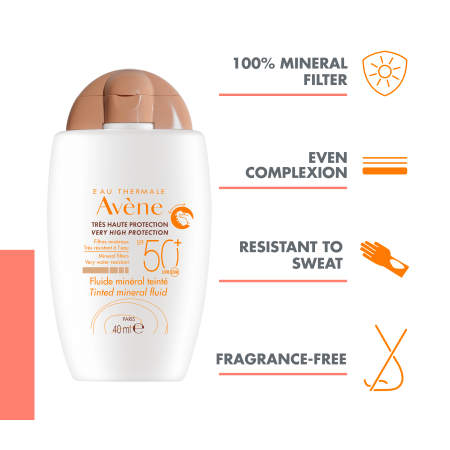
NEWSLETTER
We're always here for your skin!
All our advice on how to take care of your skin day to day.

Which skin care routine should you adopt?
Identify what it really needs with the help of our experts and discover the most suitable skin care routine for you.

